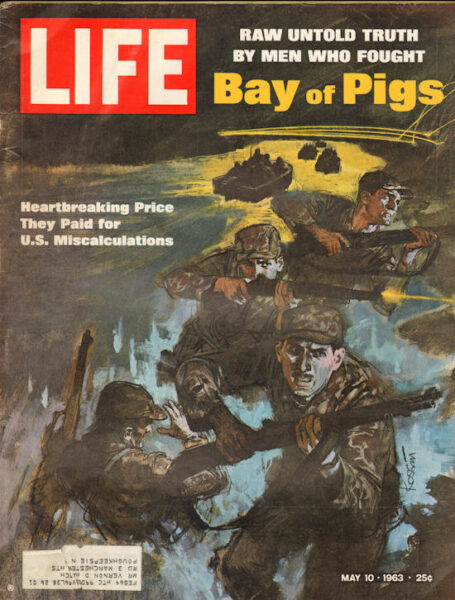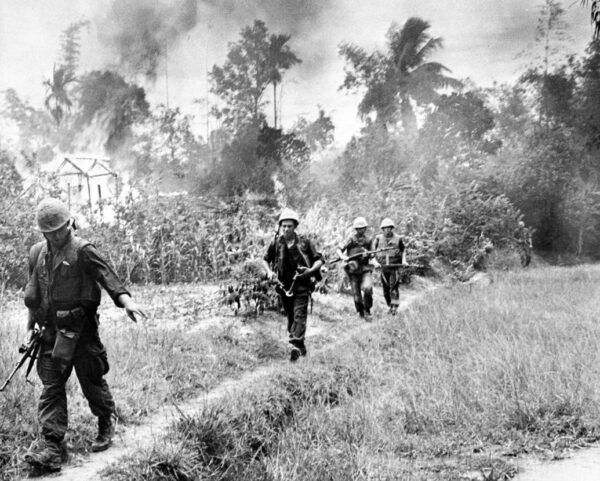Harold Pease, Ph D.
As a liberal with internationalist tendencies what made President John F. Kennedy a target of the Deep State so much so that they could not just replace him in the next election a year later? Answer, he was a “wild card and his assassination would end the threat he posed to their operations”—a new war in Vietnam which Kennedy opposed. Simply, his anti-war stance in Cuba, Laos, and Vietnam “made him a target of the intelligence community and the military.”

Kennedy learned quickly that there existed another force to reconcile with besides just the legislative and judicial branches—a real shadow government. Less than four months into office on April 27, 1961, he spoke to this secret entity directly through the press in the Waldorf-Astoria Hotel in New York City. His message, “The President and the Press: Address Before the American Newspaper Publishers Association,” condemned the existing communist conspiracy and secret societies in the United States which seemed to make up this hidden force—then called the invisible (secret, shadow) government, secret combinations, and today the Deep State.
He boldly told them, “The very word ‘secrecy’ is repugnant in a free and open society; and we are as a people inherently and historically opposed to secret societies, to secret oaths and to secret proceedings. We decided long ago that the dangers of excessive and unwarranted concealment of pertinent facts far outweighs the dangers which are cited to justify it. Even today, there is little value in opposing the threat of a closed society by imitating its arbitrary restrictions. Even today, there is little value in ensuring the survival of our nation if our traditions do not survive with it…. For we are opposed around the world by a monolithic and ruthless conspiracy that relies primarily on covert means for expanding its sphere of influence—on infiltration instead of invasion, on subversion instead of elections, on intimidation instead of free choice, on guerrillas by night instead of armies by day. It is a system which has conscripted vast human and material resources into the building of a tightly knit, highly efficient machine that combines military, diplomatic, intelligence, economic, scientific and political operations. Its preparations are concealed, not published. Its mistakes are buried, not headlined. Its dissenters are silenced, not praised. No expenditures is questioned, no rumor is printed, no secret is revealed. It conducts the Cold War, in short, with a war-time discipline no democracy would ever hope or wish to match” (“The Deep State & the Kennedy Assassination,” By Andrew Muller, The New American November 27, 2023, pp. 13-14, JFK Special Report, JFK Assassination & The Deep State). He described perfectly the Deep State that also rules our day.
This is believed to be the speech that led to his assassination 2 1/2 years later because it identifies and rejects them. “Guerrillas by night instead of armies by day” was a direct reference to the Bay of Pigs fiasco that had occurred just the week before Kennedy delivered his remarks.” Conflict between he and the CIA, a prominent Deep State player from then to today, began soon after his inauguration. The Bay of Pigs invasion was planned by the CIA in the spring of 1960, but executed three months after the Kennedy inauguration, “had been vigorously opposed by the new president.” Kennedy no longer viewed the CIA as a trusted ally to provide him with information, but “saw it as an unaccountable department operating outside the bounds of America’s elected government.” President John F Kennedy came to despise the CIA, even saying, “I will splinter the CIA into a thousand pieces and scatter it to the winds” (Ibid. p.15).
President Dwight D. Eisenhower too had just spoken of this secret force in his Farewell Address as president in 1961 warning Americans of what he called the Military Industrial Complex. He said “In the councils of government, we must guard against the acquisition of unwarranted influence, whether sought or unsought, by the military industrial complex. The potential for the disastrous rise of misplaced power exists and will persist” (Ibid. p. 18).

In 1961 the Joint Chiefs of Staff wanted Kennedy to use nuclear weapons on two sides of the globe simultaneously in Cuba’s Bay of Pigs and in Laos. They thought they could win both without ground forces. They had learned at the end of the Eisenhower Administration that Nikita “Khrushchev had been bluffing about how many ICBMs he had.” At that time he actually had none so the U.S. could be unrestrained. When they proposed this to Kennedy, “he gets up, looks at them, shakes his head and says, ‘And we call ourselves the human race,’ And walks out” (“Investigating the Kennedy Assassination,” New American, November 27, 2023, p. 8, JFK Special Report, JFK Assassination & The Deep State).
According to assistant secretary of state Roger Hillman, Kennedy said, “The Bay of Pigs has taught me a number of things. One is not to trust generals or the CIA, and the second is that if the American people do not want to use American troops to remove a Communist regime 90 miles away from our coast, how can I ask them to use troops to remove a Communist regime 9,000 miles away?” Speaking of the war in Vietnam just starting, he said on the radio, September 2, 1963, “In the final analysis, it is their war. They have to win or lose it.”
Kennedy had plans to withdraw from Vietnam altogether. On October 11, 1963, he approved National Security Action Memorandum 263, which implemented plans to withdraw 1,000 US. Military personnel by the end of 1963. “Forty-two days after Kennedy signed this document initiating a withdrawal, he was assassinated.” The document was still in effect. “A few days after his death, during the mourning, the order was quietly rescinded.” All talk of leaving Vietnam ended for a decade and 58,000 American soldiers died in that war that cost $141 billion (“The Deep State & the Kennedy Assassination,” p. 16).
If Kennedy had not been assassinated he would have phased out America’s involvement in the Vietnam War. Only the Military Industrial Complex/CIA/Deep State wanted that war. They could not control Kennedy, who didn’t. President Lyndon Johnson’s response to the pressure for war. “Just get me elected and you can have your f-in war.” They did (“Investigating the Kennedy Assassination,” pp. 8 & 11).
Dr. Harold Pease is a syndicated columnist and an expert on the United States Constitution. He has dedicated his career to studying the writings of the Founding Fathers and applying that knowledge to current events. He taught history and political science from this perspective for over 30 years at Taft College. Newspapers have permission to publish this column. To read more of his weekly articles, please visit www.LibertyUnderFire.org Column # 743
Subscribe now for free columns at this address. Help preserve our Republic while we still can.
